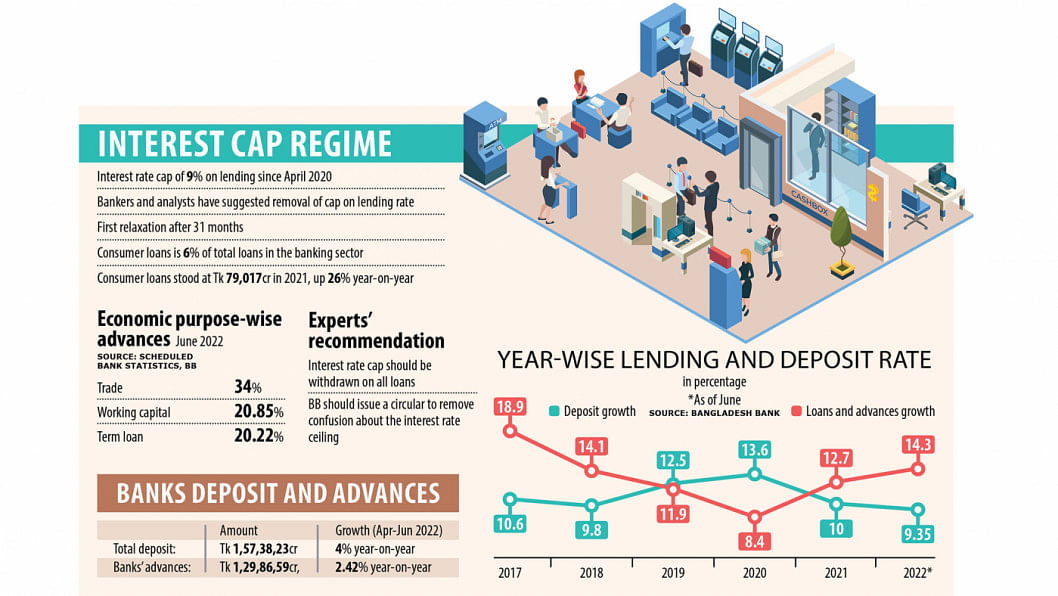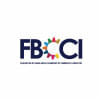BB eases cap on lending interest after 31 months

The Bangladesh Bank has decided to raise the interest rate on consumer loans to 12 per cent from 9 per cent after economists have long called for the withdrawal of the cap on all loans to contain inflation.
As per a central bank instruction aimed at supporting the fast-growing economy, accelerating industrialisation and keeping the cost of funds lower for borrowers, banks have been maintaining the 9 per cent interest rate on all loans except for credit cards since April 2020.
Everything went well until February when the flooding of the cheap funds emerged as a major headache for the economy as the country has been struggling to contain inflation, which has rocketed to a record high in recent months for the higher global commodity prices and the depletion of foreign currency reserves.
Inflation surged to a 10-year high of 9.52 per cent in August. It fell to 9.10 per cent in September.
The decision to allow the interest rate to go up comes at a time when a delegation of the International Monetary Fund (IMF) is in talks with various state agencies as part of its assessment before sanctioning a credit support of $4.5 billion to Bangladesh. It is advising the central bank to allow the interest rate to be market-driven.
The move is in the right direction as the increase in the interest rate on consumer loans has brought some changes to the interest rate structure and this is required under the current circumstances.
The lending interest ceiling has been a major barrier to curbing higher inflation despite the central bank hiking the key interest rate, also referred to as policy rates, thrice since May 29.
This is because the money supply did not less to a large extent owing to the ceiling, according to analysts, who think an increase in interest rate will reduce the money supply, thus helping tackle inflation.
The BB has not issued any notice to this end yet. It communicated the decision to the Association of Bankers Bangladesh, a platform for managing directors of banks, around two weeks ago, said bankers.
Contacted, two officials of the central bank said that a circular will be sent out to banks if required.
They said that the new decision would help contain the money supply and bring a positive impact on controlling inflation.
BB Spokesperson GM Abul Kalam Azad declined to comment.
Both Ahsan H Mansur, executive director of the Policy Research Institute of Bangladesh, and Syed Mahbubur Rahman, managing director of Mutual Trust Bank, welcomed the BB move.
"But so far I have understood that the new rule will not be applicable for the consumer loans that have already been given out," Rahman said.
"In addition, the new interest rate will not apply to mortgages or home loans."
The ratio of consumer loans is 5-6 per cent of the total outstanding loans in the banking sector.
"So, the decision will not have a major impact," a managing director of a bank said.
Consumer loans in the banking sector stood at Tk 79,017 crore as of December, up 26 per cent year-on-year.
The managing director said that the central bank should disseminate a circular on the issue to remove confusion if any.
Mansur called the BB move partial.
"This is not the first best solution. But the BB's move is in the right direction as the increase in the interest rate on consumer loans has brought some changes to the interest rate structure and this is required under the current circumstances," he said.
He hopes the central bank will allow the market to determine the interest rate across the board in the quickest possible time.
Mustafizur Rahman, a distinguished fellow at the Centre for Policy Dialogue, says that the central bank should also consider increasing the interest rates on other loans in order to contain inflation.
The exchange rate and the interest rate have a direct relationship when it comes to managing inflation efficiently, he said.
"The central bank should issue a circular to ensure transparency to this end. Verbal instruction is not expected given the gravity of the issue."

 For all latest news, follow The Daily Star's Google News channel.
For all latest news, follow The Daily Star's Google News channel. 








Comments